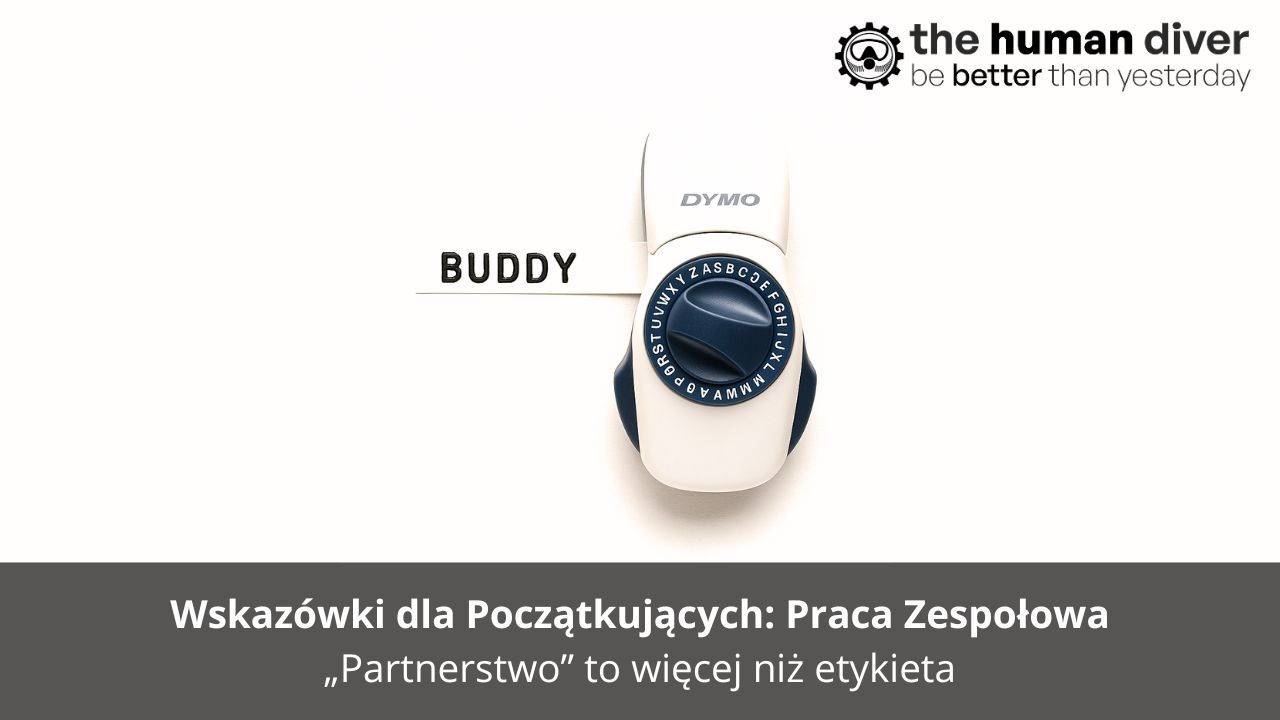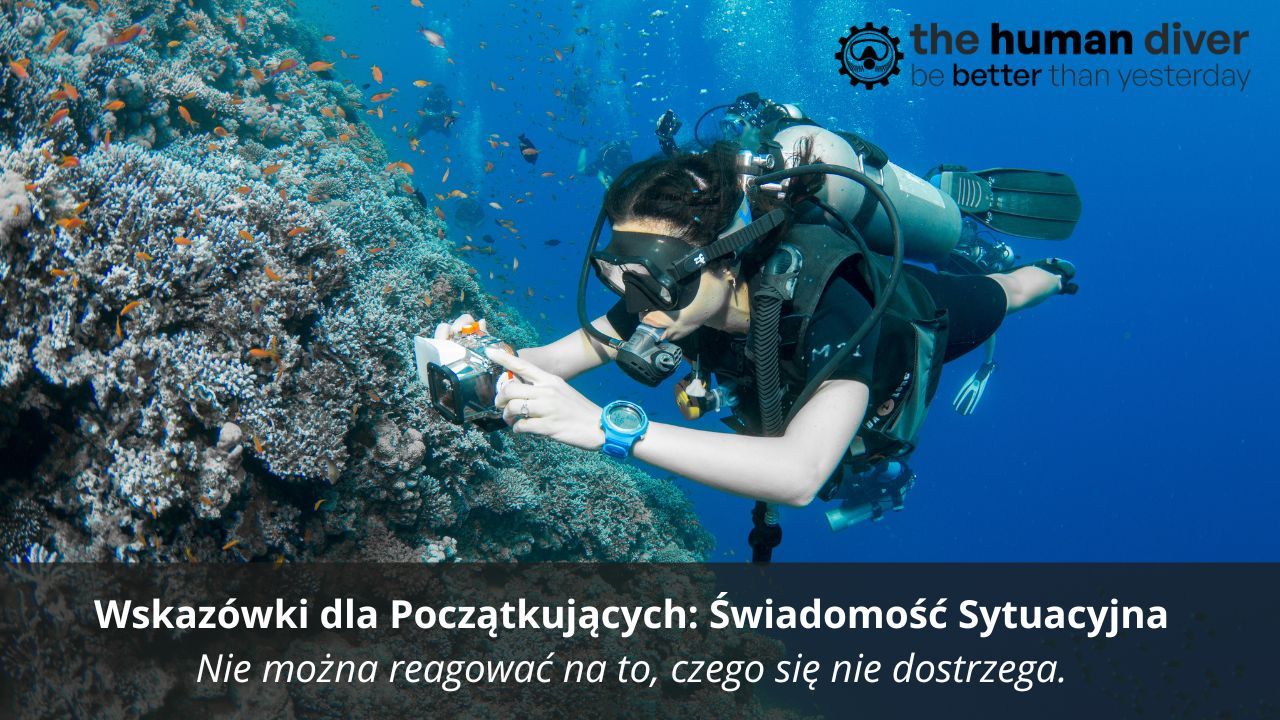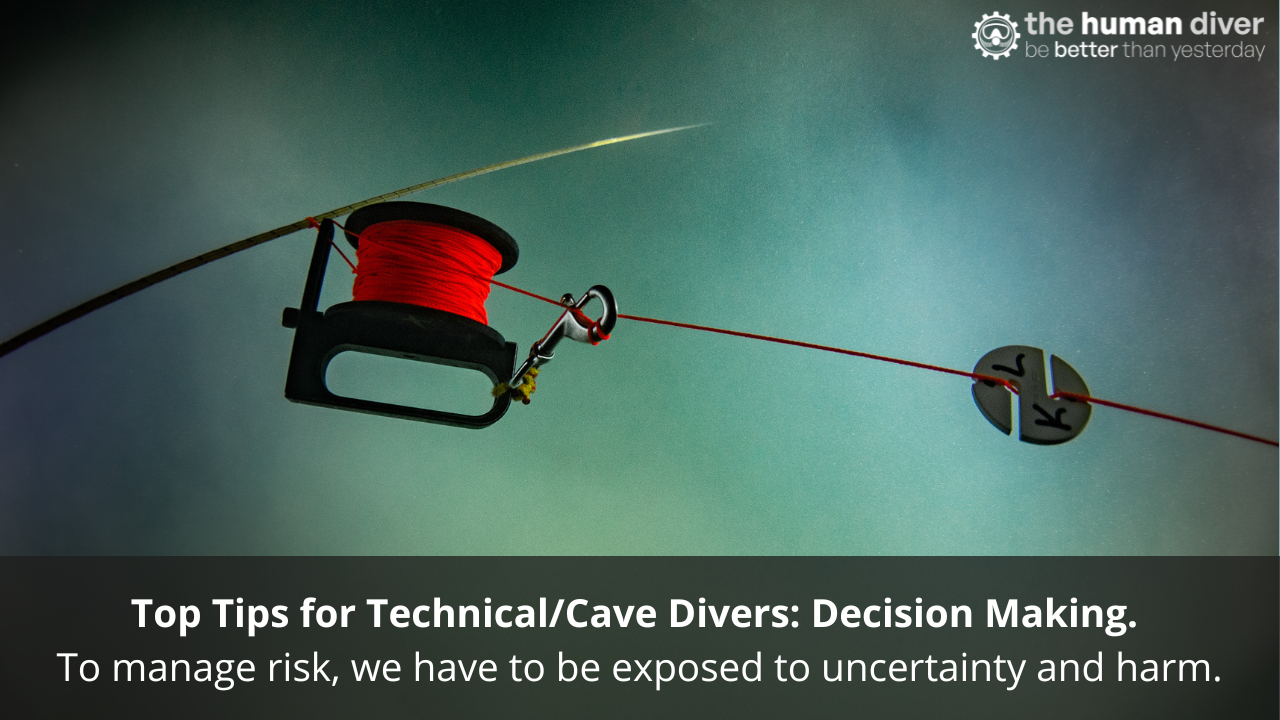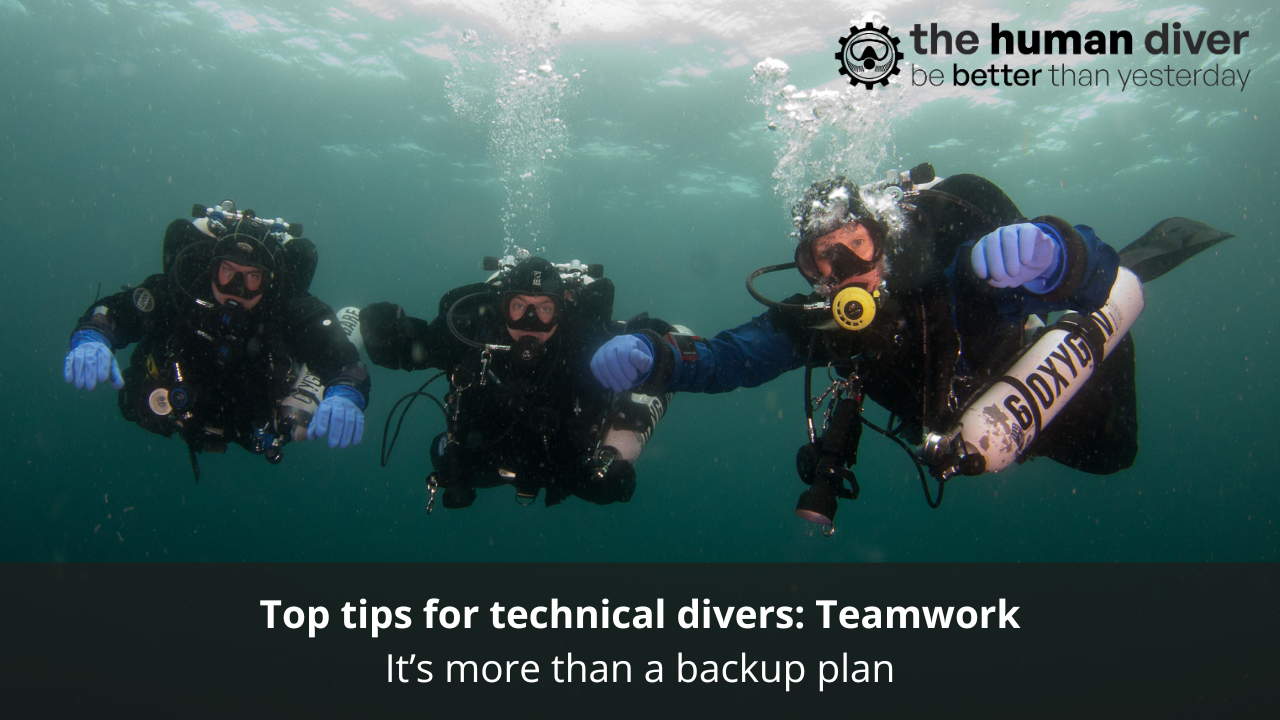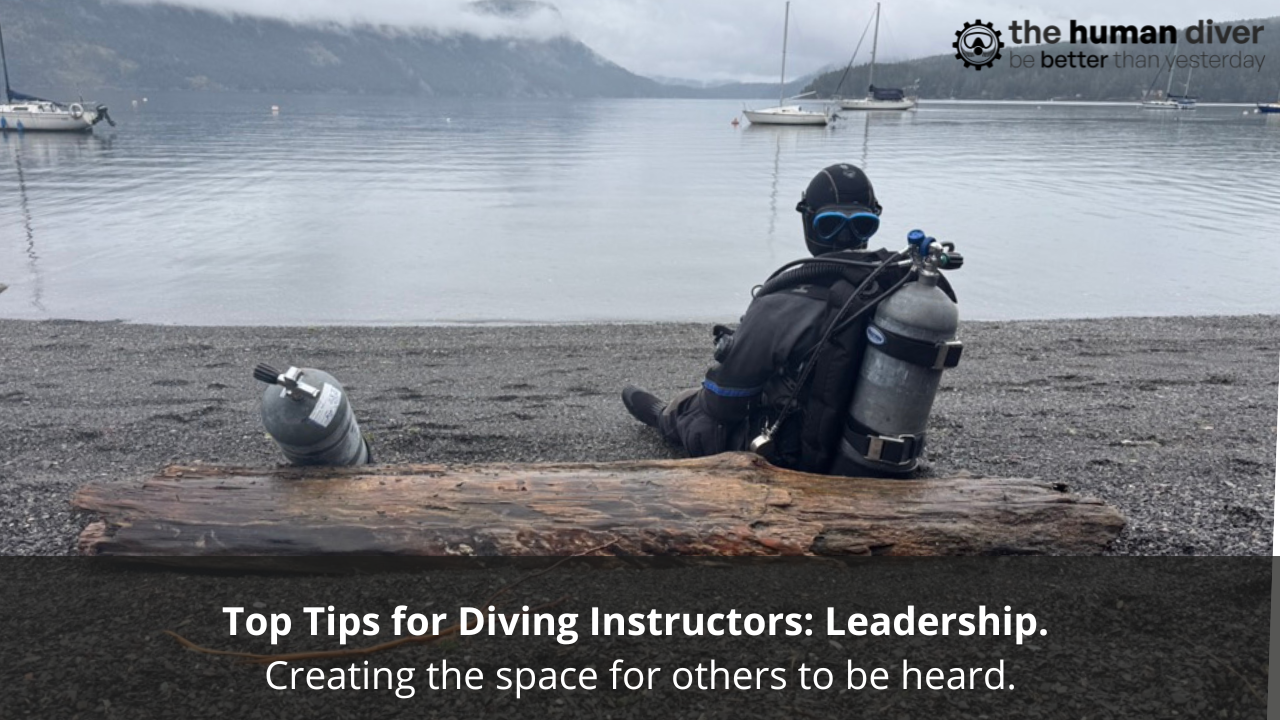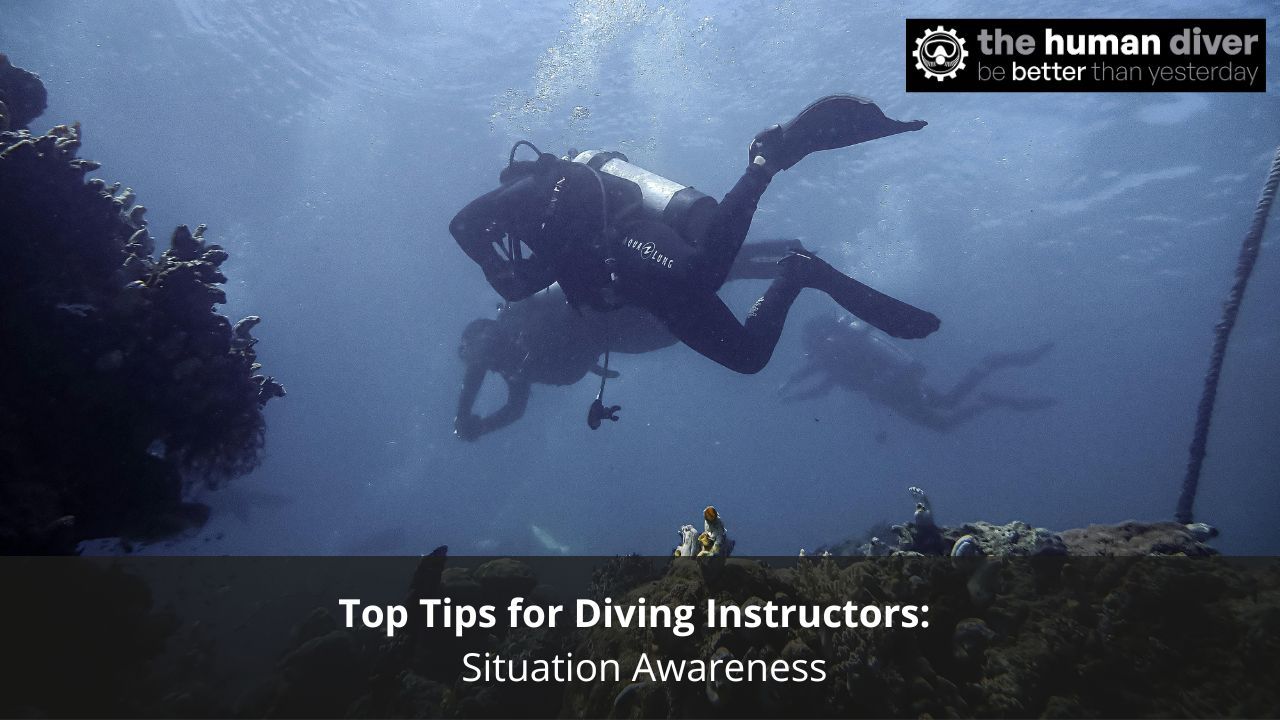
Top Tips for Diving Instructors: Situation Awareness
Sep 24, 2025Many years ago I was teaching a class with three students. Two were doing really well, completing all the skills and leading dives. The other….not so much. While he could do all of the skill requirements I could see there was “something” missing. I couldn’t explain what it was, but I knew I couldn’t certify him. He knew there was something missing too, it was pretty obvious when he did things like swim into his buddy, lose track of our location when he was in charge of navigation, or struggle to follow the decompression schedule. It was frustrating to both me and the student and I tried everything I could to give him a chance to succeed. In the end, he failed, and the only advice I could give him was to practice more and get more comfortable in the equipment, which I knew wasn't the most useful advice, but I didn’t know what else to say.
Fast forward a few years and I started learning about Human Factors. Most of the non-technical skills were familiar to me (communication, leadership, teamwork etc) as I’d taught them in a previous job as a facilitator. However, there was a new topic I learnt about: Situation Awareness. While this was something I was vaguely conscious of beforehand, it was only when we dug deeper into it that I realised that it was the “something” that had been missing. My lack of understanding of situation awareness, and inability to recognise it, along with not having the language to talk about it had meant I wasn’t able to explain to the student, or work on how to improve it.
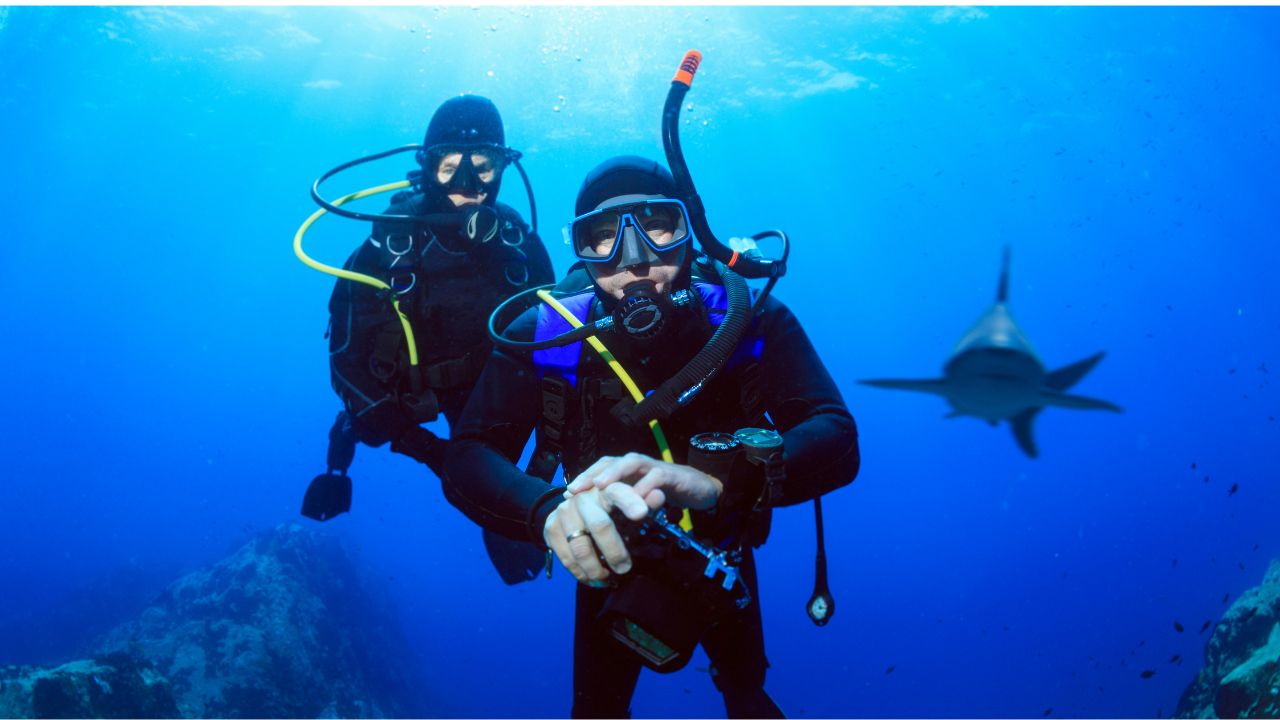
What is Situation Awareness?
At a basic level, situation awareness is not only being aware of our surroundings, but understanding what that means to us and projecting what that will mean for the future. The common comment I hear people say is “You should have paid more attention”. We have a finite capacity for the information we can absorb. If our capacity is being overloaded by something, it’s easy to miss other things that are happening around us. In the example above, I can see now that my diver was overloaded; he was having to focus on his basic skills of buoyancy, trim, breathing and finning. He looked ok in the water, so I hadn’t realised how much of his capacity was taken up by these things and it only became apparent when I gave him other tasks to complete. The times he shifted his focus onto something like his proximity to his buddy, our location or the deco schedule he would lose his buoyancy, his efficient fin kicks or his trim.
Top Tips for helping students develop Situation Awareness
1. Build skills slowly, focusing on the basics
If a student isn’t comfortable in a neutrally buoyant, trimmed position, they’re going to struggle when you introduce any other skill. No matter what level you’re teaching at, start with that. If Open Water students spend their first breaths underwater just swimming around in 1-1.5m depth, they become more accustomed to being in the swimming position and learn how to use their lungs to control their buoyancy. No federation that I know of mandates that you have to start a confined water session with regulator or mask skills! More advanced students should be able to hover and look at you while you demonstrate a skill.
2. Watch out for awareness being lost
If you introduce a new skill to a student and they immediately rocket to the surface or sink to the floor, that’s a good indication that they’re overloaded. Stop the skill, remind them to focus primarily on the basics, then try again. You know they’ve mastered it when they can do more than just complete the skill while kneeling.
3. Find out what is taking up capacity
Debriefs help us to understand a student's mental model. By asking them “what went well, and why?” and “what can you improve, and how?” you will find out what they think they need to work on. They are likely to be aware of any major problems and may bring your attention to other things that you hadn’t noticed or couldn’t see because it was something the student was feeling or thinking. For the things they are struggling with, ask them what most of their focus is on. If the basics are taking up all of their capacity, they may need some more time to master those before continuing the course.
4. Allow students to learn from your own experiences
By explaining your own perspective on a situation, you can share what cues and clues you spotted that helped you to notice something was developing in the first place. For example, you felt the current and saw the fish all swimming in one direction, which meant if we carried on in the same direction, we may not be able to swim back against the current.
5. Watch out for Gorillas!
We need to be conscious that our own capacity is reduced when we’re looking out for students, especially if they need a lot of help. If our attention has been grabbed by something, as soon as we can we need to widen our scan, look around and see what has happened during the time we’ve been distracted.
Summary
Being able to judge our students’ capacity is very important for instructors. We need to be conscious of a loss of awareness and help students to focus on what is the priority at that moment in time. Debriefs can help us understand where the student’s attention was focused so we can help them redirect it on future dives.

Jenny is a full-time technical diving instructor and safety diver. Prior to diving, she worked in outdoor education for 10 years teaching rock climbing, white water kayaking and canoeing, sailing, skiing, caving and cycling, among other sports. Her interest in team development started with outdoor education, using it as a tool to help people learn more about communication, planning and teamwork.
Since 2009 she has lived in Dahab, Egypt teaching SCUBA diving. She is now a technical instructor trainer for TDI, advanced trimix instructor, advanced mixed gas CCR diver and helitrox CCR instructor.
Jenny has supported a number of deep dives as part of H2O divers dive team and works as a dive supervisor and safety diver in the media industry.
If you'd like to deepen your diving experience, consider the first step in developing your knowledge and awareness by taking the Essentials of HF for Divers here. If you're curious and want to get the weekly newsletter, you can sign up here and select 'Newsletter' from the options.
Want to learn more about this article or have questions? Contact us.

